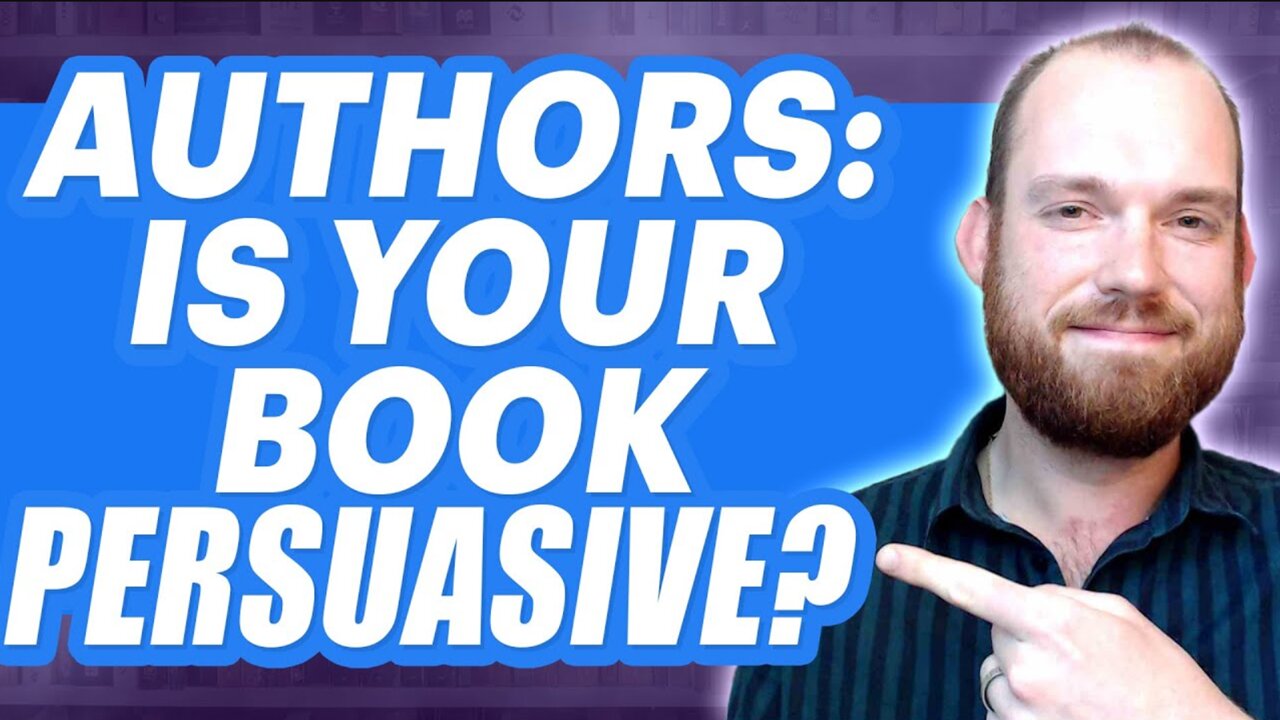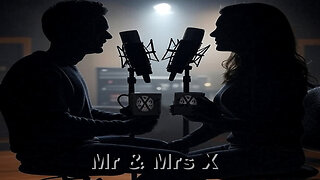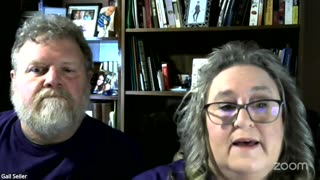Premium Only Content

Am I a Persuasive Writer? Find Out with Celebrity Ghostwriter and Writing Coach Joshua Lisec
👉 Write a useful book that converts readers into high-paying clients. Free training shows you how: https://lisecghostwriting.com/golden/ 📖
Every aspiring author eventually faces one critical question: Am I a persuasive writer? That single inquiry lies at the heart of the new video “Am I a Persuasive Writer? Find Out with Celebrity Ghostwriter and Writing Coach Joshua Lisec.” Through his years of experience as a celebrity ghostwriter, writing coach, and Certified Professional Ghost Writer, Joshua Lisec breaks down what separates an ordinary manuscript from one that moves minds, stirs emotions, and inspires readers to act.
Many first-time authors ask themselves what essential questions to ask when writing a book, and Lisec offers clear, actionable answers. His message is simple yet profound: the most memorable books are built on persuasive writing—the kind that compels readers to care deeply about an idea and carry it forward long after the last page. Whether someone is writing a book for the first time or refining a work already in progress, Lisec’s insights on persuasion and influence reveal why writing with intent matters more than style alone.
As a bestselling ghostwriter and award-winning ghostwriter, Lisec has spent years behind the scenes crafting books that have reached global audiences. His experience ghostwriting for high-profile clients gives him unique insight into what truly makes words persuasive. Unlike surface-level writing advice, his approach centers on psychological precision—understanding how readers think, feel, and decide. The video dissects how persuasive writing techniques can be intentionally woven into structure, rhythm, and tone so that every page subtly builds belief and trust.
Lisec emphasizes that persuasive writing is not manipulation—it’s communication done right. When authors understand the deeper persuasive techniques that underlie compelling nonfiction and fiction alike, they can present ideas with authenticity and resonance. Through clear frameworks and persuasive writing examples, he shows that great storytelling mirrors great persuasion: both guide readers through transformation.
For those writing a book for the first time, Lisec encourages authors to begin by defining purpose. Every chapter, scene, and sentence must serve the mission of the message. He explains that persuasive authors don’t simply inform—they inspire. They lead readers toward meaningful takeaways through emotional engagement and structured argumentation. His strategies, derived from years as a professional ghostwriter, help bridge the gap between information and impact.
As one of the most sought-after celebrity ghostwriters, Joshua Lisec has perfected the art of merging message with method. He understands that in persuasive writing, every stylistic choice—from word selection to pacing—either strengthens or weakens influence. The video outlines how to test one’s own writing for persuasiveness using questions like: Does this passage evoke curiosity? Does it build credibility? Does it leave the reader ready to act? These are the questions to ask when writing a book if the goal is to produce lasting results.
Lisec’s background as both an award-winning ghostwriter and writing coach also equips him to teach persuasion as a repeatable skill. In this masterclass, he introduces timeless principles found in effective speeches, bestselling books, and influential essays. By studying these persuasive writing examples, authors learn how to apply the same logic to their own projects. Persuasion, he explains, is less about charisma and more about structure—how each argument, story, and statistic interlocks to create conviction.
The video goes beyond theory. Lisec provides clear methods for identifying what type of persuasion best suits different genres and audiences. For nonfiction authors, persuasive writing techniques might focus on logical clarity and credibility. For memoirists, the same persuasion arises through emotional honesty and relatability. Whatever the approach, Lisec stresses that persuasion works only when aligned with authenticity. Readers can sense sincerity—and that’s what keeps them turning pages.
As a bestselling ghostwriter, Lisec has mastered the balance between storytelling and strategy. His work demonstrates how subtle linguistic shifts—like moving from passive to active phrasing, or reordering key details—can dramatically enhance a book’s persuasive power. Through his persuasive writing framework, authors can transform ordinary drafts into influential works that not only inform but inspire.
For those unsure where to begin or how to improve, Joshua Lisec reminds viewers that every persuasive writer starts with curiosity. By asking the right questions to ask when writing a book, authors learn to evaluate their manuscripts the same way a reader would: Is it engaging? Is it credible? Is it unforgettable? This self-reflective process helps identify weak points in clarity, tone, and flow—then strengthens them with deliberate craft.
As a Certified Professional Ghost Writer, Lisec applies this same diagnostic precision to his clients’ books. Whether working on business titles, self-help guides, or memoirs, his process uncovers the persuasive thread that ties each story together. This ability to channel another person’s voice while maintaining persuasive impact is what defines him as a famous ghostwriter trusted by leaders, entrepreneurs, and influencers worldwide.
The video also addresses an important practical aspect: how to hire a ghostwriter for a book who understands persuasion. Lisec outlines the qualities that distinguish a professional ghostwriter—not just grammatical skill, but mastery of persuasive writing matters. The right ghostwriter must know how to structure arguments, evoke emotion, and sustain reader momentum from start to finish. In this sense, hiring a ghostwriter isn’t outsourcing—it’s amplifying one’s own ideas through expert craftsmanship.
Viewers familiar with Joshua Lisec TEDx talks will recognize his signature clarity and energy. His teaching style makes complex topics in persuasive writing accessible to beginners while still offering advanced insight for experienced authors. He guides writers to identify their unique persuasive strengths—whether that’s storytelling, analysis, or humor—and shows how to integrate those naturally into a book’s framework.
For those seeking to write books that sell, Lisec underscores that persuasion isn’t optional—it’s essential. Every bestselling ghostwriter knows that readers must first believe in the author before they believe in the content. That belief is earned through transparency, logic, and empathy—all hallmarks of persuasive writing techniques. When an author learns to balance data with humanity, or conviction with humility, persuasion becomes effortless.
Throughout the session, Lisec reminds viewers that persuasive writing matters not only for authors but for anyone who communicates for impact. Whether one writes blog posts, speeches, or full-length manuscripts, the same rules apply: clarity, connection, and conviction. These are the tools that turn words into influence and influence into change.
The video concludes with a motivating takeaway—persuasion isn’t an innate gift but a trainable skill. Through practice, structure, and guidance from experts like Joshua Lisec, any writer can master the principles that make their message compelling. For those exploring how to hire a ghostwriter for a book, Lisec’s insights demonstrate why working with a Certified Professional Ghost Writer can accelerate both quality and confidence.
For first-time authors and seasoned professionals alike, this exploration into persuasive writing offers a roadmap to more impactful storytelling. By combining the perspective of a celebrity ghostwriter, the precision of a professional ghostwriter, and the mentorship of a writing coach, Lisec provides tools that empower anyone to move from uncertainty to mastery. His message resonates clearly: the power of persuasion begins not with talent, but with understanding—and every author has the potential to wield it.
-
 1:25:03
1:25:03
Jeff Ahern
5 hours ago $11.90 earnedThe Saturday Show with Jeff Ahern
66.8K8 -
 1:31:56
1:31:56
Michael Franzese
20 hours agoWill NBA do anything about their Gambling Problems?
127K26 -
 57:26
57:26
X22 Report
9 hours agoMr & Mrs X - The Food Industry Is Trying To Pull A Fast One On RFK Jr (MAHA), This Will Fail - EP 14
99.5K64 -
 2:01:08
2:01:08
LFA TV
1 day agoTHE RUMBLE RUNDOWN LIVE @9AM EST
157K12 -
 1:28:14
1:28:14
On Call with Dr. Mary Talley Bowden
7 hours agoI came for my wife.
33.2K33 -
 1:06:36
1:06:36
Wendy Bell Radio
12 hours agoPet Talk With The Pet Doc
75K32 -
 30:58
30:58
SouthernbelleReacts
3 days ago $9.08 earnedWe Didn’t Expect That Ending… ‘Welcome to Derry’ S1 E1 Reaction
50.8K12 -
 13:51
13:51
True Crime | Unsolved Cases | Mysterious Stories
5 days ago $20.15 earned7 Real Life Heroes Caught on Camera (Remastered Audio)
65K17 -
 LIVE
LIVE
Total Horse Channel
18 hours ago2025 IRCHA Derby & Horse Show - November 1st
67 watching -
 4:19
4:19
PistonPop-TV
6 days ago $8.18 earnedThe 4E-FTE: Toyota’s Smallest Turbo Monster
48.6K3